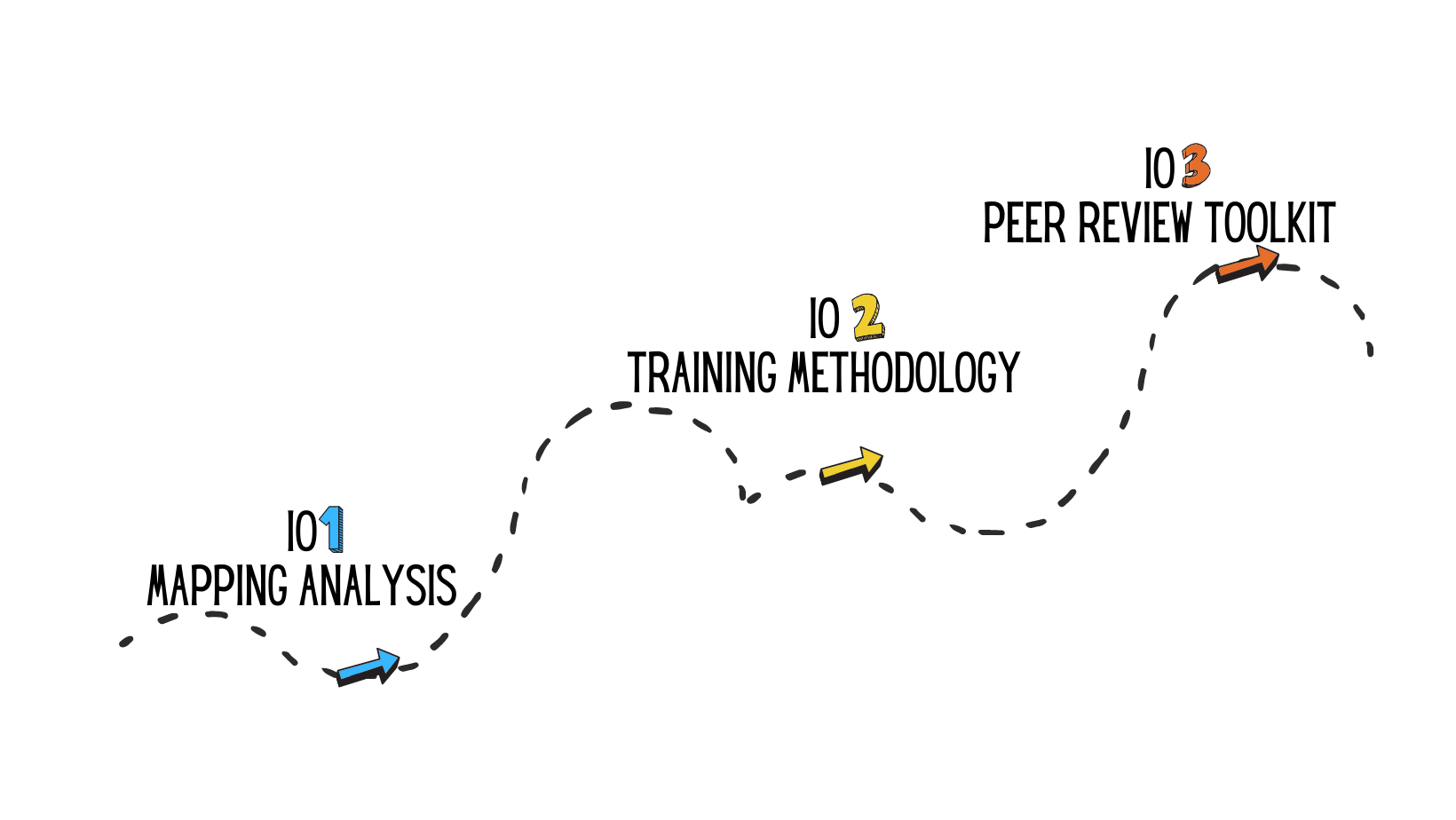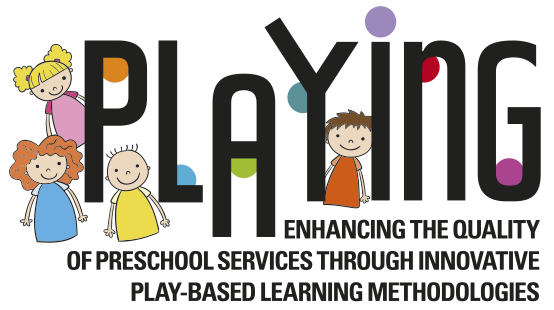Intellectual Outputs

The project will develop three Outputs
MAPPING ANALYISIS

The mapping analysis (IO1) offers an overview on the topic of the project, determining the existing needs and the gaps in methodologies and knowledge related to play-based learning. Research on play as a phenomenon emphasizes the importance of teachers working with play in a systematic way to support children’s development and learning in Early Childhood Education. The mapping analysis has two aims:
- to conduct a literature review which collect and compile research about play in Early Childhood Education in Europe. The focus in the review is on how preschool teachers can support children’s play.
- to invent the preschool practice in the different partner organizations by asking the following questions:
- in what way do preschool teachers support and stimulate children ́s social and communicational skills through play? And what characterizes their actions?
- in what way can the children be recognized as active agents in the creation of play?- what kind of possibilities and obstacles can be detected by the invention?
At the base of the mapping study there is the literacy review on pedagogical models involving play-based learning. The literature review will be conducted by all partners, each partner will have a specific focus in their own country (Italy, Sweden, Denmark, Spain, Belgium) on important publications written by relevant scholars and each partner will explain how the publications in their country are differing from the others.
TRAINING METHODOLOGY

The training methodology (IO2) on play based learning is a teaching method comprises the principles and methods used by preschool teachers to enable children learning through play. The methodology is based on guidelines, a set of principles that provide directions to teachers to enhance children’s understanding and linguistic production through the use of the play in preschools. The main sections of the guidelines are:
- the concept of play-based methodologies and play;
- the role of teachers: direct and indirect teachers’ intervention in play;
- essential aspects that make symbolic play a source of learning and developing linguistic skills in childhood
- correct adoptions of play in preschools:
- design the space
- materials
- time for playing
PEER REVIEW TOOLKIT

The peer review toolkit (IO3) is a tool to evaluate all preschool services in Europe on the correct implementation of play based learning methodologies in play activities. The aims of the IO3 are:
- Enhancing ongoing personal practice
- Engaging in reflective, constructive and analytical discussion with a peer on the use of play based learning activities
- Sharing good practice and allow for ongoing professional development


